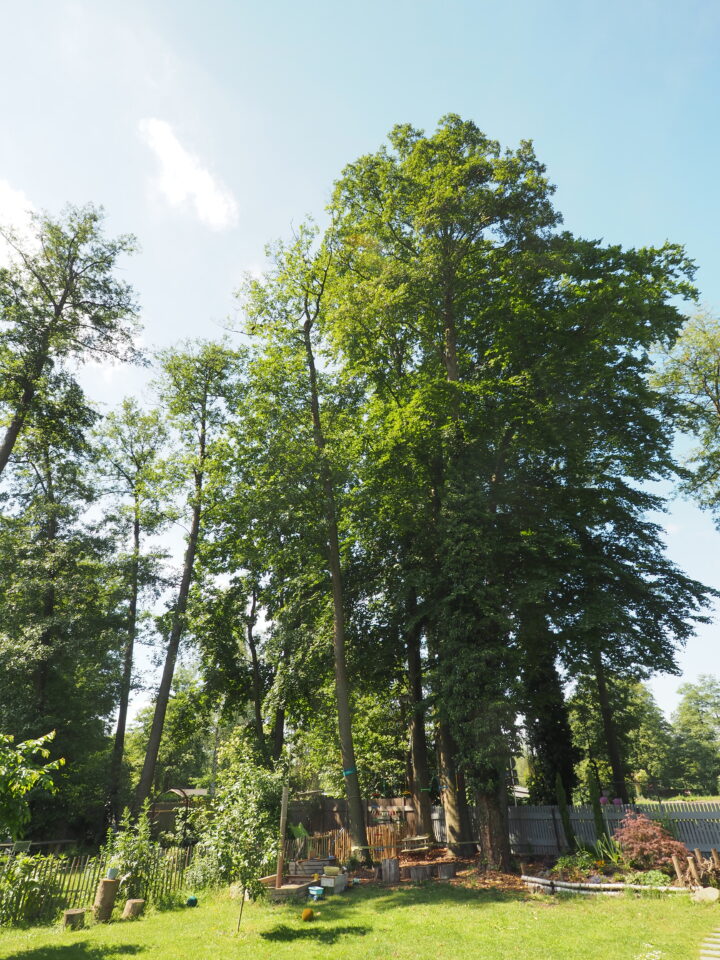Three years ago, my family and I moved from the city center to the periphery of Berlin. We’ve been lucky to find a beautiful piece of land. The numerous trees, about 20m high, are part of the beauty. They capture carbon, are homes of insects and provide shade during hot summer days.
Recently, I noticed that we refer to these trees as “our trees.” We bought the land, and everything on this land belongs to us — so the standard narrative goes.
But weren’t the trees here before us? Might some of them be here even once me and my family will be gone?

I started to see us as stewards of the land and the animals that live on it. We’re guests in their lives, and they’re guests in ours. The same is true for materials. The device you’re using to read this article right now consists of multiple materials. The aluminium, copper, and lithium were here before us and will be here after us. The circular economy is all about treating them as the treasures they are.
When we transform our economy from linearity to circularity, it helps to change our attitude from ownership to stewardship.
The attitude of ownership values what is mine. The valuables of others are only attractive as far as I can benefit from them. I expect an immediate return for every benefit I bring to the world. I put myself in the center of the world and want to maximize my possessions. Ownership means “I”.
Stewardship is different:
- Stewardship is shepherding and safeguarding the valuables of others.
- Stewardship includes caring for something else without expecting a synchronous transactional return.
- Stewardship requires seeing yourself as part of a wider web of life, and part of a broader system.
Stewardship means “We”. But how does this relate to circular business practices?
Economic incentives are not yet fully designed to keep resources in the loop. As a result, acting circularly is not always in the customer’s comfort and the provider’s commercial interest. Customers discard products and materials because one tiny component is not working anymore. Products are wasted because repairing them is more expensive than producing and shipping a new one. Materials are not separated because it is too expensive. Therefore, many companies shy away from circular innovations – or they don’t even see them.
A company led by a stewardship attitude will see opportunities others don’t see. Applied stewardship is like seeing the world with different eyes, spotting solutions and products beyond current transactional imagination.
- A company that starts to care about the loss of insects opens up a new business to redesign company premises with the needs of insects in mind, see Insect Respect
- A candy company that got affected by nuclear fallout launched a now-market-leader in solar heat, see Ritter Energie
- A fashion company that supplements selling clothes with an extensive warranty, repair services and second-hand marketplace, turned into an inspirational market leader in outdoor and casual fashion, see Patagonia
Stewardship alone won’t make a successful company. A company with a blind stewardship attitude will most likely be bankrupt soon. It must be supplemented with commercial ambition and execution.
We already have a name for the resulting business models: impact business models. There are countless impact business companies out there. Moreover, many other companies silently bring many positive changes to the world without being called out as impact businesses.
Some, maybe all, of these opportunities could have been identified by those driven by an attitude of ownership only. It’s the magic of markets that, given a policy in the public interest, will lead companies to enhance the common good. However, not everyone is motivated by maximizing ownership.
An attitude of stewardship can unleash people’s imagination and energy to see circular opportunities and start exploring them. What begins with a feeling of care might end up in a million-euro company fueling the circular transformation. Sometimes, these solutions will live longer than the stewards who helped to bring them into the world.
